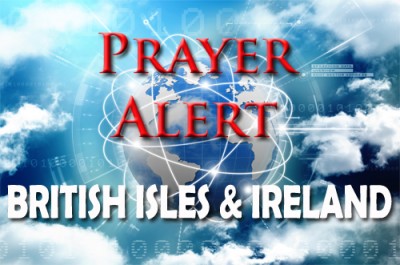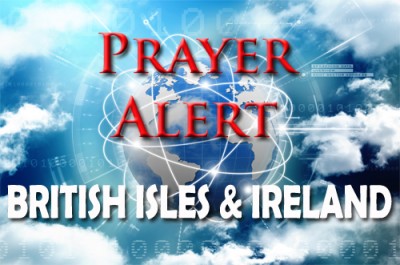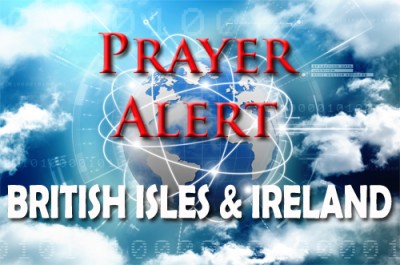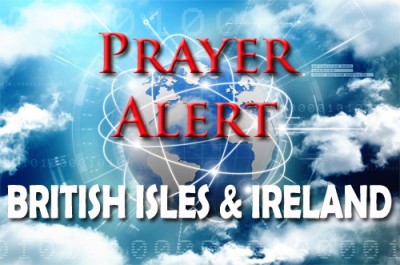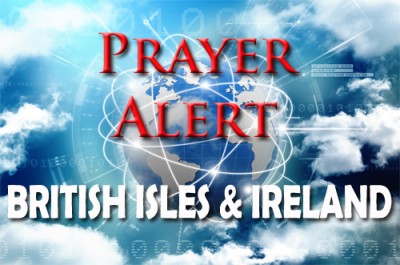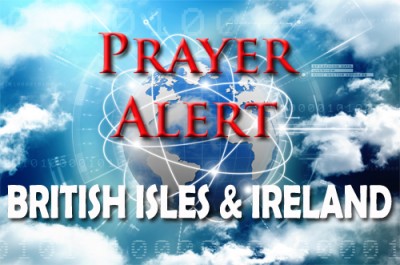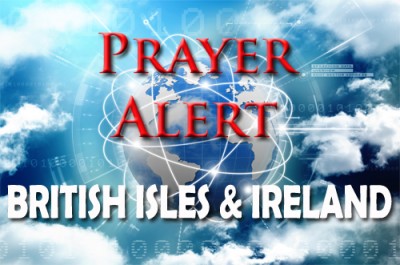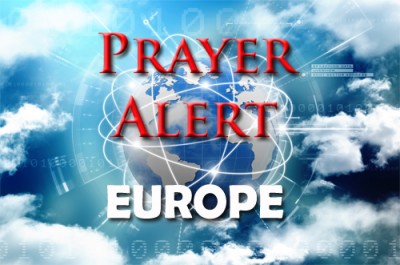Three wards at Leicester Royal Infirmary have closed after 16 cancer patients were diagnosed with swine flu. The patients have been isolated to avoid an outbreak. Another three people with flu are being treated at the city's Glenfield Hospital but these cases have not yet been confirmed as swine flu. Anyone suffering from cold and flu symptoms should avoid the hospitals. It is a normal winter, swine flu is the normal flu and the number of cases is not that high across the East Midlands. However, when it gets into a clinical setting where people are very vulnerable then this is a difficult situation to manage. Doctors say, ‘Everything is being done and it is under control.’
A sex abuse survivor accused the Church of England of attempts to prevent him from sharing his story. Graham Sawyer was abused by Bishop Peter Ball in 1970 and 1980. In a General Synod fringe meeting Sawyer said he experienced harassment, vilification and intimidation when trying to speak about his experiences. Bishop Ball was jailed last December for misconduct in public office and indecent assault. He was cautioned in 1993 for gross indecency against a minor but was allowed to work in churches until 2010. Tuesday's ‘fringe meeting’ was organised by the Church Reform Group, of which Sawyer is the chair, and the National Council of Hindu Temples. The director of communications for the Church of England was not at the meeting and therefore unable to respond to the accusations. The Archbishop of Canterbury has promised that an independent inquiry into child abuse will be launched in the coming weeks.
Serving migrants in our midst
19 Feb 2016UK cities are taking in refugees, Birmingham has taken 50, but the need is enormous. Birmingham’s refugees are mostly Eritreans, Afghans, Sudanese and Iranians. Many need housing, all need friendship and support. People wanting to help don’t know how to get involved. Nabil came from Tunisia, heavily pregnant and with an 18-month-old daughter, no money and nowhere to stay, her husband had left her. She was desperate. An acquaintance put Nabil in touch with an Interserve partner who organised help and support - toys for the toddler, a solicitor appointment and a food parcel. Nabil broke down in tears. ‘No one has ever shown me love like this before, you are the sunshine in my darkness.’ The months ahead are likely to see unprecedented numbers of refugees arriving in our towns and cities. How we as a nation respond to the situation may decide the future of these desperate people. Pray for organisations like Interserve who are serving migrants in our midst.
More than a thousand NHS patients in England in the past four years have suffered from serious mistakes that should never happen. These ‘never events’ included a man who had a testicle removed rather than just a cyst. A woman's fallopian tubes removed instead of her appendix. The wrong legs, eyes or knees were being operated on and there are hundreds of cases of foreign objects such as scalpels being left inside bodies after operations. Patients' lives were put in danger when feeding tubes were put into their lungs instead of their stomachs. Patients were given the wrong blood type during transfusions and others given wrong drugs or drug dosages. Katherine Murphy, chief executive of the Patients Association, said, ‘It is a disgrace that such supposed 'never' incidents are still so prevalent. How are such basic, avoidable mistakes still happening? There is clearly a lack of learning in the NHS. It is unforgivable to operate on the wrong organ, such mistakes can never be rectified.’
British military training establishments
19 Feb 2016The ongoing news about the Deepcut inquiry keeps military training establishments in our minds. Initial training is conducted at training centres around the country - which one you’ll go to depends on your age and which part of the military you are joining. This is usually followed by a period of trade training where personnel undergo more specialist training for their particular role in military life. These periods of training can be quite intense, at least initially. The Padre and the welfare team provide a listening ear and pastoral support during this time. The Padres are also asked to take regular services with the recruits, provide training on morality, integrity and living to certain standards. Pray that those in early stages of military training will not feel too homesick or alone, for new recruits to make wise and lasting friendships amongst their peers and quickly learn to take care of each other.
Pastor makes appeal for missing Ben Nevis pair
19 Feb 2016An appeal has been made by Chris Denham, the pastor at Hope City Church in Leeds, for a missing couple, both experienced climbers, who have not been seen since embarking on a climb up Ben Nevis last weekend. Efforts to locate Rachel Slater, 24, and Tim Newton, 27, in the Scottish Highlands were suspended on Tuesday due to treacherous weather conditions. Mr Newton's brother is assistant pastor there and he posted a picture of the couple on Instagram with the message, ‘Please pray for the safe return of Tim & Rachel and for the weather to clear which is preventing rescue teams from searching at present and for all the family. Believing for miracles to be taking place on that mountain because God is able’
The decision over whether we 'stay in' or 'leave' the European Union has the potential of bringing significant division into every area of our society in the UK. As the body of Christ we need to be on our guard in prayer over our families, churches, communities, businesses and governments asking that His kingdom will come and His will be done in and for the UK as well as for the rest of Europe. As we go to press the EU leaders’ summit is about to take place on 18 - 19 February . If there is agreement then David Cameron will be in a position to announce a referendum date and the Yes and No campaigns will start in earnest.
Now is the time to watch and pray over the next stage of the negotiations that are taking place between the UK and the rest of the EU nations.
Germany: Freedom to speak
19 Feb 2016Intercessors in Germany write, ‘Since the Paris massacre, Istanbul attack and assaults in Cologne, feelings of unease and fear have intensified. Also, we now know that certain information was purposely withheld by official sources to avoid causing civil unrest in Cologne. Truth only came to light through unnamed police officers who revealed there was a ‘gag order’ to prevent the release of information about crimes committed by migrants. There was a one-sided reporting strategy by the media and politicians to steer the public into thinking they were being fully informed. But the ‘public’ is now being informed from other sources and see through the veil of propaganda. They protested with anger. Many said nothing so as not to be accused of being right-wing extremists. But Christians do not have a spirit of fear but of power and confidence. This word also means ‘freedom to speak’. Whoever is confident also speaks freely, without giving in to fear before God and mankind.'
